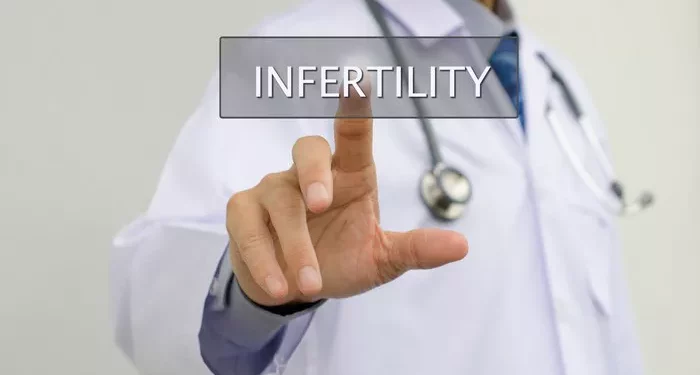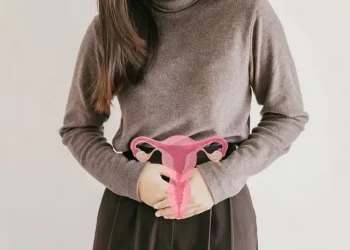Uterine fibroids, also known as leiomyomas or myomas, are non-cancerous growths that develop in the uterus. These growths can vary in size, ranging from small, pea-sized nodules to large, grapefruit-sized masses. While fibroids are typically benign, they can cause various symptoms and complications, including infertility, depending on their size, number, and location within the uterus.
Fibroids are quite common, with research indicating that up to 70-80% of women may develop fibroids by the age of 50. They are most prevalent during the reproductive years, typically between the ages of 30 and 40, although they can occur at any age.
Types of Uterine Fibroids
There are several types of uterine fibroids, each characterized by its location within the uterus:
1. Submucosal Fibroids: These fibroids develop inside the uterine cavity, protruding into the uterine lining. Submucosal fibroids have been associated with infertility as they can interfere with embryo implantation by distorting the uterine cavity.
2. Intramural Fibroids: These fibroids develop within the muscular wall of the uterus. While they may not directly block the fallopian tubes, large intramural fibroids can distort the uterine cavity, potentially affecting embryo implantation and increasing the risk of infertility.
3. Subserosal Fibroids: Subserosal fibroids grow outside the uterus, often projecting from the uterine wall. While these fibroids are less likely to directly impact fertility, large subserosal fibroids can exert pressure on surrounding organs, causing discomfort and potentially interfering with reproductive function.
4. Pedunculated Fibroids: Pedunculated fibroids are attached to the uterus by a stalk-like structure. While they may cause discomfort due to their twisting or torsion, they are less likely to cause infertility compared to other types of fibroids.
Impact on Fertility
Fibroids can affect fertility through various mechanisms, including:
1. Implantation Disruption: Submucosal fibroids can distort the uterine cavity, making it difficult for embryos to implant properly into the uterine lining. This interference with implantation can significantly reduce the chances of successful pregnancy.
2. Fallopian Tube Blockage: Large intramural fibroids can exert pressure on the fallopian tubes, potentially obstructing them and preventing the sperm from reaching the egg or the fertilized egg from traveling to the uterus for implantation.
3. Changes in Uterine Shape: Large fibroids, regardless of their location, can alter the shape of the uterus. This alteration in uterine shape may affect sperm movement within the reproductive tract or interfere with embryo development and implantation.
Pregnancy Complications
In addition to impacting fertility, fibroids can increase the risk of certain pregnancy complications, including:
1. Miscarriage: Submucosal fibroids, particularly those located near the uterine cavity, have been associated with an increased risk of miscarriage, possibly due to their disruptive effects on embryo implantation and early pregnancy development.
2. Preterm Labor: Fibroids, especially large or multiple ones, may cause the uterus to contract prematurely, leading to preterm labor and delivery. This can increase the risk of complications for both the mother and the baby.
3. Placental Abruption: Large fibroids located near the placenta can disrupt blood flow, increasing the risk of placental abruption—a serious condition where the placenta separates from the uterine wall prematurely, potentially causing severe bleeding and endangering the pregnancy.
Treatment Options
Treatment options for fibroids vary depending on the severity of symptoms, the size and location of the fibroids, and the patient’s reproductive goals. Some common treatment approaches include:
1. Watchful Waiting: For asymptomatic fibroids that are not causing significant discomfort or affecting fertility, a “watch and wait” approach may be recommended, with regular monitoring to track any changes in size or symptoms.
2. Medications: Hormonal treatments, such as birth control pills or gonadotropin-releasing hormone (GnRH) agonists, may be prescribed to help manage symptoms such as heavy menstrual bleeding or pelvic pain associated with fibroids.
3. Surgical Interventions: Surgical options for fibroids include myomectomy, which involves removing the fibroids while preserving the uterus, and hysterectomy, which involves removing the entire uterus. Myomectomy is often recommended for women who wish to preserve their fertility, while hysterectomy may be considered for those who have completed childbearing or have severe symptoms that do not respond to other treatments.
4. Fertility-Sparing Approaches: For women who desire to preserve their fertility, fertility-sparing options such as myomectomy or minimally invasive procedures like uterine artery embolization (UAE) or magnetic resonance-guided focused ultrasound surgery (MRgFUS) may be considered to remove or shrink the fibroids while preserving the uterus.
Lifestyle and Coping Strategies
In addition to medical interventions, lifestyle modifications and coping strategies can help manage fibroid symptoms and improve overall well-being. These may include:
1. Healthy Lifestyle: Adopting a healthy diet rich in fruits, vegetables, and whole grains, maintaining a healthy weight through regular exercise, and practicing stress management techniques such as yoga or meditation can help reduce fibroid symptoms and improve overall health.
2. Seeking Support: Dealing with fibroids, especially if they are causing infertility or pregnancy complications, can be emotionally challenging. Seeking support from healthcare professionals, support groups, or trusted friends and family members can provide emotional support and practical advice for coping with the condition.
Conclusion
In conclusion, fibroids can significantly impact fertility by interfering with embryo implantation, blocking fallopian tubes, or causing changes in uterine shape. Understanding the different types of fibroids, their potential effects on fertility and pregnancy, and the available treatment options is essential for women who are experiencing infertility or considering pregnancy. By working closely with healthcare providers and adopting healthy lifestyle habits, women can effectively manage fibroid symptoms and improve their chances of achieving a healthy pregnancy.
Related Topics:
A Comprehensive Guide to Ayurvedic Treatment for Oligospermia



























